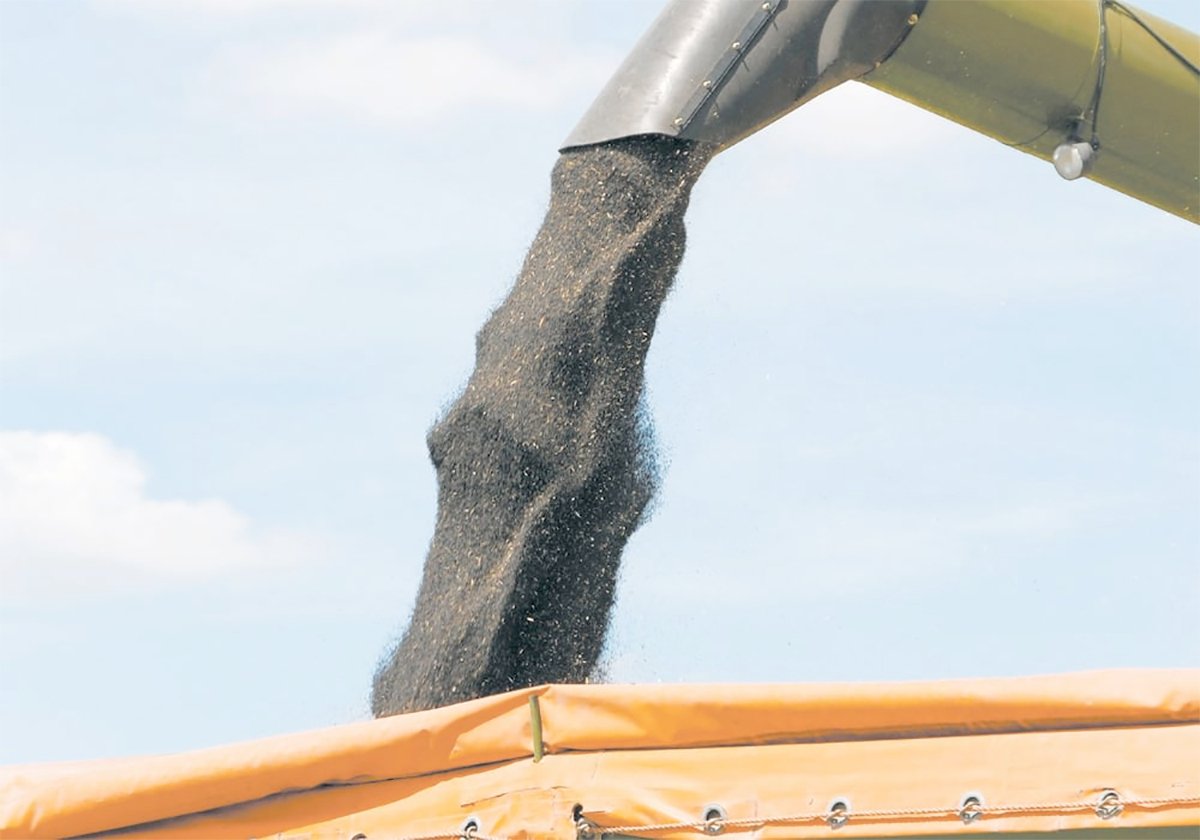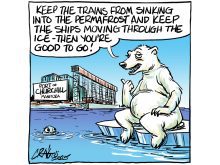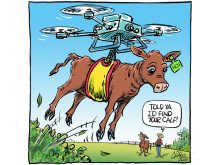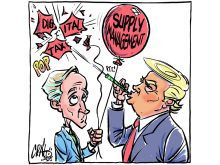The Federal Court of Appeal’s ruling that effectively halted construction on the Trans Mountain pipeline wasn’t just about oil. By extension, agriculture will suffer, too.
And when you consider that together they account for more than a quarter of Canada’s economy, that ruling by a three-judge panel had a much bigger impact than a single pipeline —which the federal government bought for $4.5 billion.
So every effort must be made to address this.
The proposed pipeline expansion from Edmonton to Burnaby will significantly increase capacity. This, in turn, would allow the oilsands to boost production without more demand on rail, allowing exports to new markets in Asia.
Read Also

Determining tariff compensation will be difficult but necessary
Prime minister Mark Carney says his government will support canola farmers, yet estimating the loss and paying compensation in an equitable fashion will be no easy task, but it can be done.
Oil companies move 95 percent of their crude through pipelines, which are by far the safest mode of transportation. But they are running at capacity. Currently, about five percent is moved by rail. With increasing output from the oilsands, there is more demand for space on rail, which competes with farmers who must move their grain.
As any farmer on the Prairies knows, Canada has suffered through two major backlogs in grain movement over the last five years. (The backlog in 2013-14 alone was estimated to have cost up to $8 billion.)
To be fair, oil isn’t to blame for those backlogs, but oil movement is lucrative for rail companies, and is part of the equation.
In 2017, about 23 percent of Canadian Pacific Railway’s revenue and 13 percent of Canadian National Railway’s revenue came from grain. The two companies saw three percent and two percent come from crude, respectively. It’s easy to see why rail companies would be eager to move more oil — it is a major lucrative opportunity.
According to the Canadian Agri-Food Trade Alliance, Canada exports half its beef, 70 percent of soybeans, 70 percent of pork, 75 percent of wheat, 90 percent of canola and 95 percent of pulses.
In February, the prime minister’s economic advisory council identified the agri-business sector as a major part of the nation’s economic expansion, looking to boost Canada’s share of global agri-food exports (about $34 billion in 2015) to eight percent from 5.7 percent.
This opportunity exists because global demand for food is expected to rise by about 70 percent by 2050. Canada must exploit its economic advantage in these sectors or others will.
Yet how can we do this if we have not figured out how to reliably move our crucial resources?
The situation must be resolved. The Trans Mountain pipeline is vital to the economies of Alberta, the Prairies and the nation. It is unacceptable to see Alberta’s economic potential restricted because we cannot figure out how to move crude.
The judges ruled that the National Energy Board didn’t properly consult with First Nations about the pipeline expansion and that the board erred when it didn’t consider the effect of increased marine traffic. It’s thought that the NEB took that direction to avoid activating the Species at Risk Act, which would have forced the panel to consider the impact on migrating whales.
One would think that these would have been major decisions, and that they would have got it right.
So get it right. The ruling left open the opportunity for the NEB to address these issues and submit its findings to the court for consideration. It should do so immediately. Launching an appeal to the Supreme Court should also be considered because it is a much longer process that might ultimately be required.
Back in March, we wrote in this space that tackling the pipeline issue “will require a great deal of grit from the Trudeau government.”
In the coming weeks, we’ll see whether the prime minister has true grit.
Karen Briere, Bruce Dyck, Barb Glen, Brian MacLeod and Michael Raine collaborate in the writing of Western Producer editorials.















